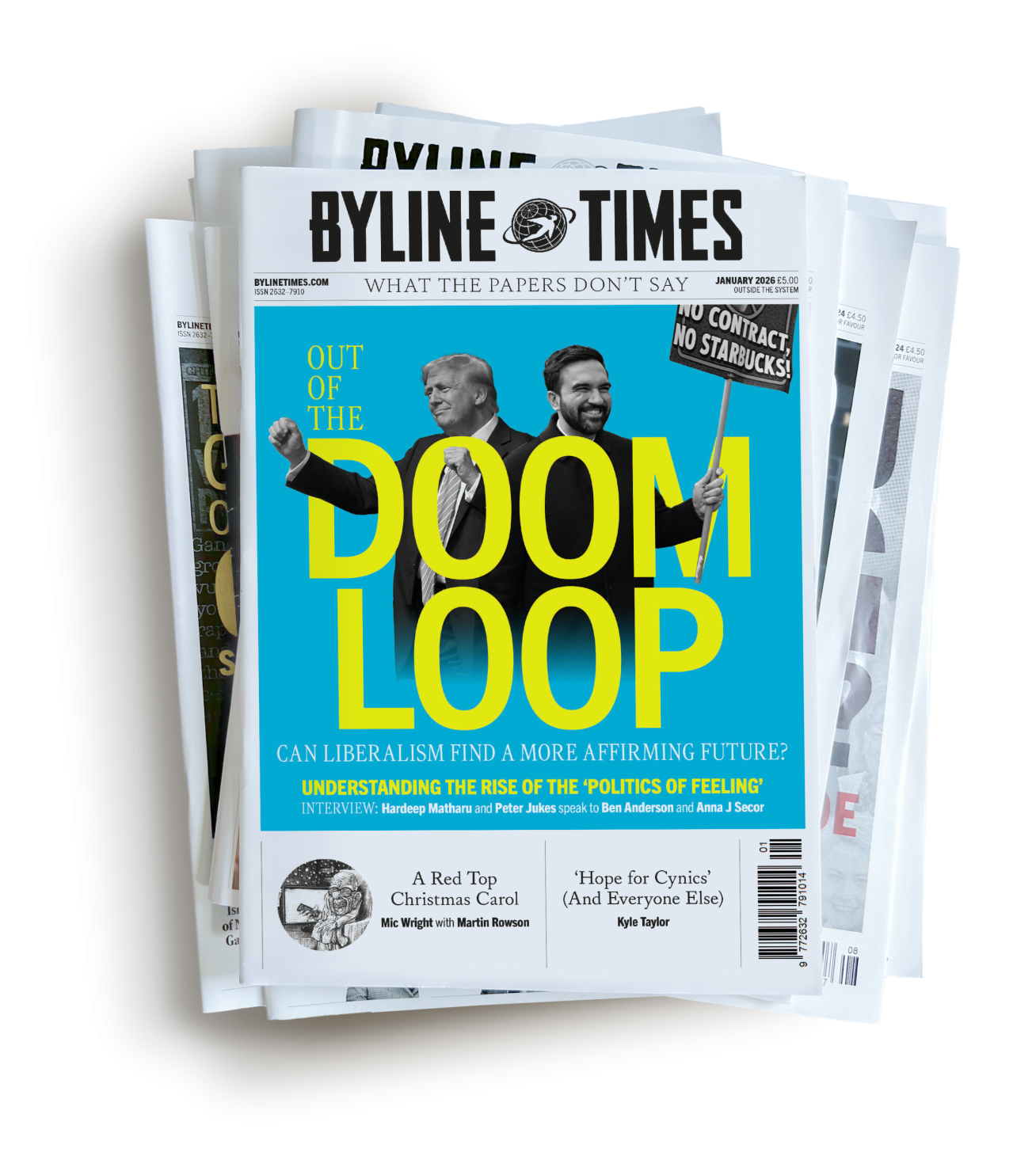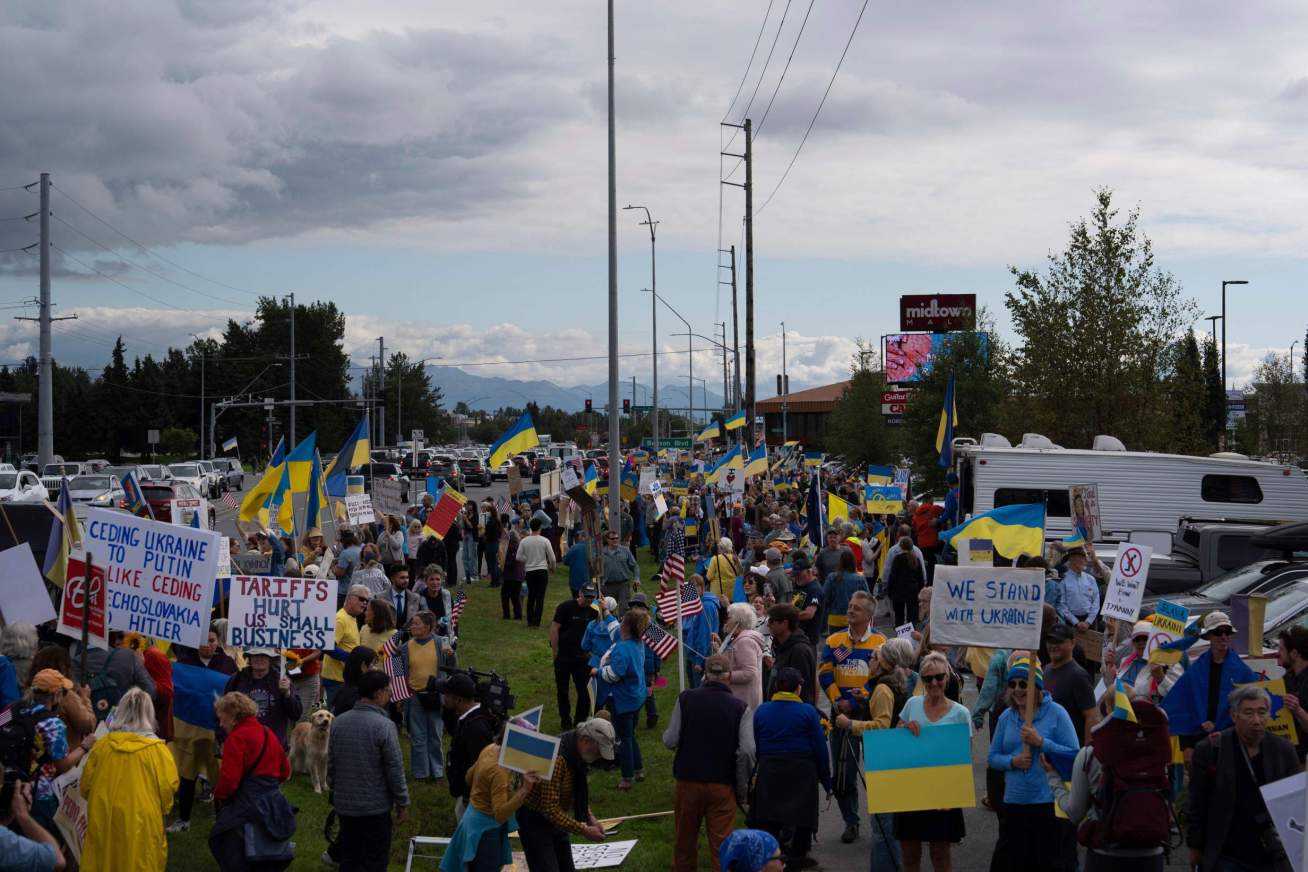
Read our Digital & Print Editions
And support our mission to provide fearless stories about and outside the media system
The planned meeting between Donald Trump, United States President, and the President of the Russian Federation Vladimir Putin, in Anchorage, Alaska, marks a significant geopolitical development. While the outcome remains unclear, two overarching points define the context of the talks.
First, in light of Trump’s remarks on the swapping of territories, the war in Ukraine is not a territorial dispute, as pointed out by Olga Tokariuk, a Fellow at the Center for European Policy Analysis (CEPA), during a CEPA press briefing.
Russia’s objective is not limited to capturing land but to subjugating a sovereign, democratic, pro-Western state. Public statements by Trump suggesting that territorial concessions could end the war are likely to be interpreted in Moscow as impunity, encouraging further aggression.

Second, Russia has a long record of disregarding treaties and commitments. The 1994 Budapest Memorandum, under which Ukraine surrendered its nuclear arsenal in exchange for security guarantees from the US, UK, France, and Russia, has been rendered meaningless by Russia’s actions since 2014.
The metaphor of “playing chess with a bear” captures the dynamic: rules are irrelevant when parties are about to devour the chessboard.
Geopolitical and Diplomatic Implications
From Ukraine’s perspective, the principle of “nothing about Ukraine without Ukraine” is non-negotiable, said Tokariuk. Both the government and the public share the position.
The exclusion of Ukraine’s president from the talks has drawn historical comparisons to the 1939 Molotov–Ribbentrop Pact, when major powers divided Eastern Europe without the participation of the affected states. In addition, any bilateral agreement between Washington and Moscow that excludes Kyiv would have no validity for Ukraine and is widely viewed as a sign of weakening US support.
For Russia, the summit offers multiple advantages. It grants Putin international visibility, undermines the authority of the International Criminal Court arrest warrant issued against him for the kidnapping of Ukrainian children, and disrupts the diplomatic isolation imposed by Western states since the full-scale invasion began in 2022.
On a global level, the summit’s optics could reshape alliances, potentially moving the US closer to Russia. The meeting sidelines Europe at a moment when transatlantic unity is critical.
The location carries symbolic weight. Alaska was part of the Russian Empire until its sale to the United States in 1867. Russian media have long framed Alaska as historically theirs, a territory to be returned.
Military Dimensions
Ukraine’s military position is clear: it rejects territorial concessions and will not agree to end the war “at any cost”, according to Tokariuk. Russia has insisted on full Ukrainian withdrawal from four partially occupied regions. For Kyiv, this is a red line.
While Ukraine supports a ceasefire along the current line of contact, it raises the issue of security guarantees. Any pause in fighting without enforceable mechanisms risks allowing Russia to regroup and launch renewed offensives.
The question of who would act as a guarantor—and how such a guarantee would be implemented—remains unanswered.
Economic Factors
One of Putin’s possible motivations for the Anchorage summit is economic. US secondary sanctions, particularly those targeting oil and gas revenues, have increased pressure on Russia’s war-driven economy. Avoiding such sanctions is a priority for the Kremlin.
However, Russia’s economy is now heavily militarised. Should the war end, it would face structural challenges in converting back to civilian production. This reality limits Moscow’s incentive to genuinely de-escalate.
Ukrainian and European Responses
On the ground in Ukraine, Russian attacks continue daily all around the country. In the South, Olha Chernyshova, a Kherson resident interviewed by Byline Times, described the summit as “white noise,” noting that it has no immediate impact on the daily reality of missile, artillery, and drone strikes.
In Odesa, several residents said that President Volodymyr Zelenskyy does not have the authority—under Ukraine’s constitution—to sign away territory. Ukrainian public opinion reflects deep scepticism toward Trump, whom many by now view as an unreliable partner. Hopes in Ukraine are pinned on European action, particularly the transfer of frozen Russian state assets to fund reconstruction and defence.
Europe is concerned: German Chancellor Friedrich Merz convened an emergency virtual summit of European leaders, Zelenskyy, and Trump, to coordinate positions ahead of the Alaska meeting. Canadian Prime Minister Mark Carney separately assured Zelenskyy of Canada’s continued support for Ukraine’s territorial integrity and decision-making autonomy.
Tokariuk outlined two possible outcomes. The best-case scenario would see no US–Russia deal, no pressure on Ukraine to concede territory, and the introduction of new US sanctions on Russia. The worst-case scenario would involve Ukraine being pressured into concessions without credible security guarantees, a potential lifting of sanctions, and an end to US military aid.
“The main concern is that Trump and Putin will offer a ‘peace’ plan that is unacceptable to Ukraine and try to portray Zelenskyy as the aggressor,” said Heidi Cuda, Byline Times columnist.
What to Expect
Ukraine’s position remains unchanged: no territorial concessions and no recognition of Russian occupation. Any agreement that rewards aggression or disregards war crimes risks emboldening Moscow, undermining US credibility, and weakening transatlantic unity.
For Washington, the stakes extend beyond Ukraine. A summit outcome perceived as favouring Russia could erode the US role as a security guarantor in Europe, strain relations with allies, and encourage other authoritarian leaders to pursue territorial expansion.
ENJOYING THIS ARTICLE? HELP US TO PRODUCE MORE
Receive the monthly Byline Times newspaper and help to support fearless, independent journalism that breaks stories, shapes the agenda and holds power to account.
We’re not funded by a billionaire oligarch or an offshore hedge-fund. We rely on our readers to fund our journalism. If you like what we do, please subscribe.
As attacks continue across Ukraine, the Alaska meeting will be watched closely not only in Kyiv and Moscow but also in European capitals and globally.
Whether playing chess with the bear ends the war or only lets it sharpen its claws remains an open question.
